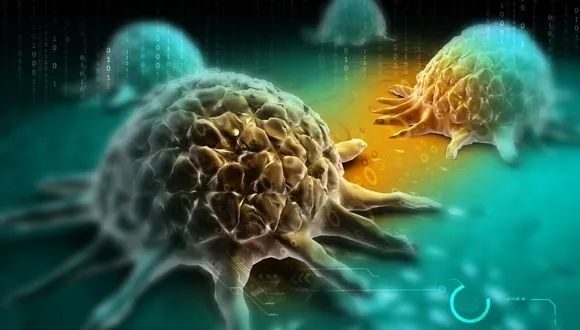
A better way to kill tumor cells
Written on | Medicine
Engineered cells may be harnessed in new immunotherapy for cancer patients, Tel Aviv University researchers say
There is now a multitude of therapies to treat cancer, from chemotherapy and radiation to immunotherapy and small molecule inhibitors. Chemotherapy is still the most widely used cancer treatment, but chemotherapy attacks all the rapidly dividing cells that it locates within the body, whether they’re ultimately harmful or beneficial.
A new Tel Aviv University study led by Dr. Yaron Carmi of TAU’s Sackler Faculty of Medicine finds that a form of immunotherapy used to treat the blood cancer leukemia may be effective in treating other kinds of cancer as well. A form of leukemic immunotherapy known as chimeric antigen receptors (CAR) T-cell therapy may also be effective in killing solid tumor cells coated in specific antibodies, the researchers say.
The study was published in the Journal of Clinical Investigation on August 26.
Using the body’s own immune system
“Chemotherapy damages all fast-growing cells, including hair follicles and cells that line the gastrointestinal tract, and this attack on healthy cells causes serious side effects, which include hair loss, nausea, mood changes, pain, anaemia, nerve and muscle problems, and kidney issues,” explains Dr. Carmi. “Immunotherapy, on the other hand, is a type of biological therapy that uses the body’s own immune system to seek out and destroy cancer cells. Engineered T cells have been proven very successful in treating blood cancer but attempts to use them to fight solid cancers have been disappointing. “Our engineered cells have now shown efficacy in attacking solid tumors as well,” Dr. Carmi says. CAR T-cell therapy is a form of immunotherapy that uses altered T cells to fight cancer. T cells are a type of lymphocyte, or white blood cell, that plays a central role in the immune response. T cells are collected from the patient and modified in the lab to produce structures called CARs on their surface. These receptors allow the T cells to attach to a specific antigen on the tumor cells and kill them.Fewer side effects, more precision
Side effects from immunotherapy may include severe inflammation, caused by an overactive immune system working to fight tumor cells. “Patients who utilize CAR T-cell therapy experience significantly fewer side effects than with chemotherapy,” adds Dr. Carmi. “And while chemotherapy is only effective while the drug is in the body, immunotherapy provides long-lasting protection against cancer. “Our lab discovered a distinct subset of helper T cells, also known as CD4+ T cells, that express the high-affinity receptor for IgG – an antibody – and efficiently kill tumor cells coated with these antibodies,” explains Dr. Carmi. “This method uses CAR T-cell therapy and combines it with antibody specificity. Based on this discovery we were able to engineer novel T cells with enhanced tumor-killing activity and higher specificity, compared with other T cell-based therapies for cancer. “Our engineered cells have the potential to overcome barriers usually faced by CAR T-cell therapy and have shown efficacy in solid tumors. This finding has the capability to change the way cancer is treated, demonstrating that the immune system can be utilized to identify and fight all types of cancer.”Related posts










Destroying Cancer: new drug delivery system containing RNA therapy can target cancer cells in bone marrow
31 July 2023





Operation Guardian of the Walls: Women, Young People and Residents of the South Paid the Heaviest Price
12 July 2023

